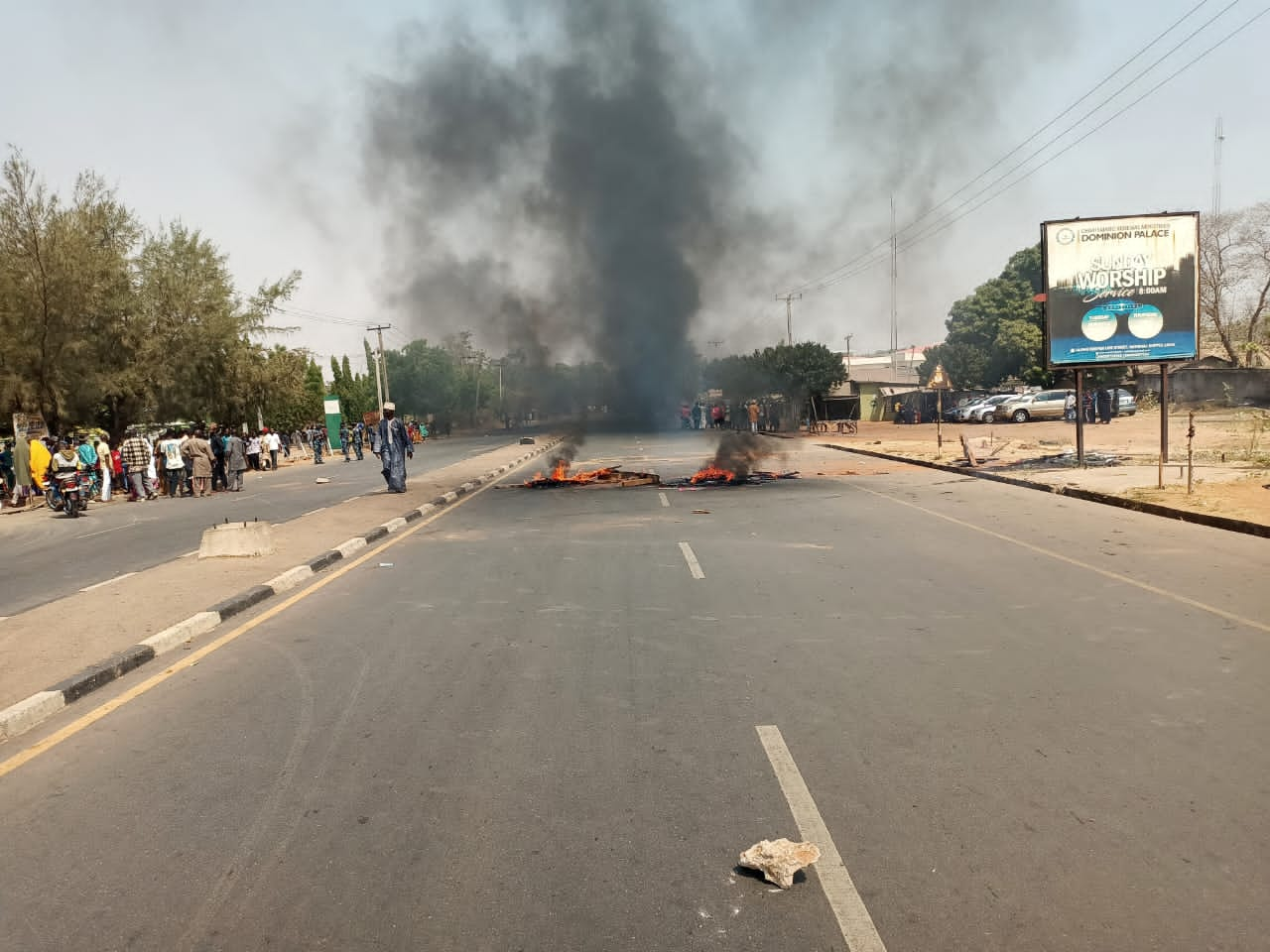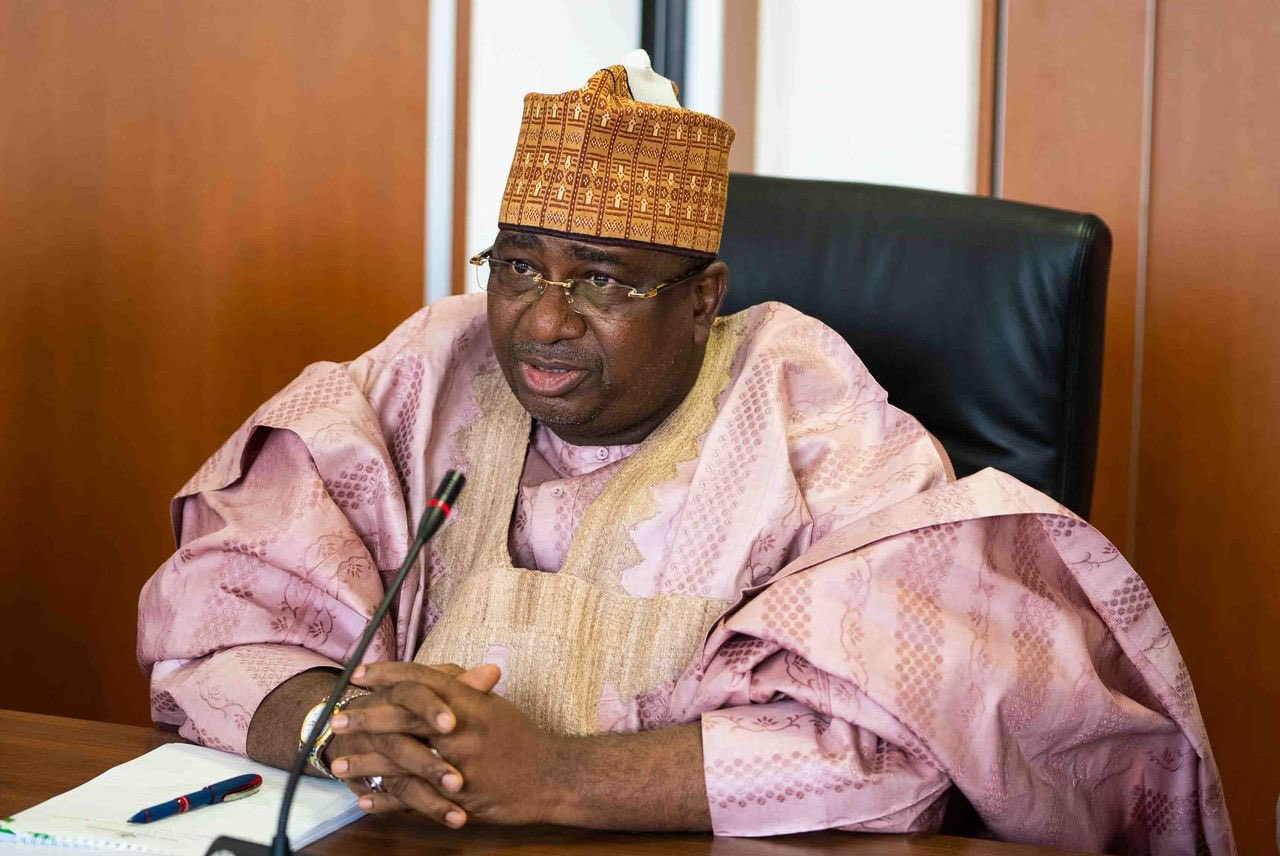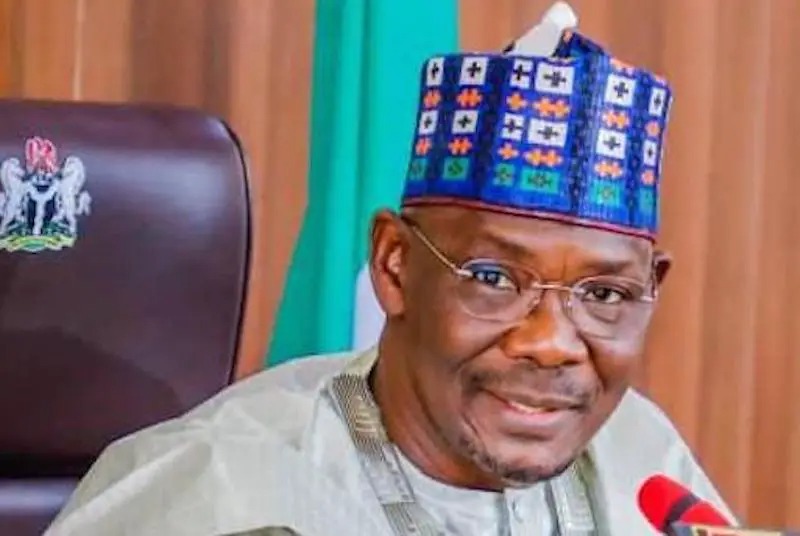Foreign
S. Korea liable to compensate victims of 1975 presidential decree – Supreme Court

The Supreme Court of South Korea on Tuesday ruled that the country is liable to compensate victims of a now-defunct presidential decree enforced in the 1970s during the presidency of the late Park Chung-hee to crack down on anti-government activists.
The apex court made the ruling after an en banc session in a compensation lawsuit filed against the state by 71 people, who were arrested and served prison terms for violating the Presidential Emergency Decree No. 9, and their heirs.
The Park government issued Presidential Emergency Decree No. 9 in May 1975 to prohibit all politically motivated group activities and gatherings, including anti-government demonstrations by students.
Violators would be punished by imprisonment of more than one year.
Park, who ruled the nation from 1961-1979 after seizing power in a military coup, had earlier declared eight other emergency decrees based on the so-called Yushin (renewal) Constitution introduced in 1972 to remain in power permanently.
Tuesday’s ruling is a direct reversal of the Supreme Court’s previous verdict reached seven years ago on the state’s liability to the victims of the same decree.
In 2013, the Constitutional Court declared Park’s Emergency Decrees No. 1, 2, and 9 as unconstitutional, saying the measures infringed the basic rights of citizens, such as freedom of expression and assembly and political suffrage.
The Supreme Court also ruled in the same year that Presidential Emergency Decree No. 9 was invalid due to its infringement of people’s basic rights.
In March 2015, however, the Supreme Court refused to recognise the state’s liability for compensation to the victims of the emergency decree, saying the decree was only a political act of the state and thus cannot be seen as an illegal act under civil law.
But some lower courts have since issued verdicts that are different from that of the top court.
The Supreme Court began deliberations on the latest compensation lawsuit in February 2018 after it was dismissed by lower courts based on the 2015 Supreme Court ruling.
The top court ruled in favour of state compensation, saying the emergency decree No. 9 violated people’s basic rights and can be seen as an illegal act under civil law.
It then ordered the Seoul High Court to retry the case.
“State actions ranging from the issuance and execution of emergency decree No. 9 were illegal due to the absence of objective legitimacy by public officials enforcing the decree,” the Supreme Court said.
“Thus state liability for compensation can be recognised for damage suffered by individual citizens who underwent forced investigations or were convicted and served prison sentences under emergency decree No. 9,” it added.
(Yonhap/NAN)
Foreign
Trump calls for Keystone XL pipeline plans to be revived
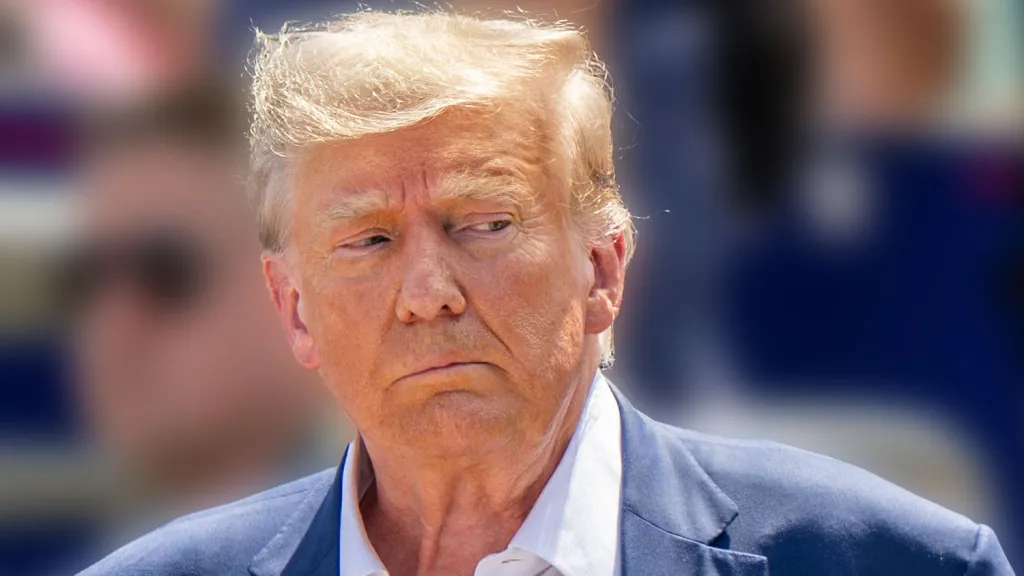
U.S. President Donald Trump has called for the revival of the Keystone XL pipeline, which would carry oil from Canada to the U.S.
Trump took to his online platform Truth Social to urge the company building the pipeline to come back to America.
“The Trump administration is very different, easy approvals, almost immediate start.
“If not them, perhaps another pipeline company. We want the Keystone XL pipeline built,’’ he said.
The pipeline, first proposed in 2008, has been controversial from the start.
It would carry crude oil from oil sands in Alberta, Canada to Nebraska in the Midwestern U.S., where it would link up existing pipelines that connect to the Gulf of Mexico and the Mississippi River.
It was opposed by environmental groups and Native American tribes.
A long-standing battle between the oil industry and environmentalists trickled into politics and U.S. and Canadian courts.
Then U.S. president, Barack Obama, rejected the project in 2015 due to environmental concerns before Trump revived it during his first term in office.
Then, in one of his first actions as U.S. president in 2021, Joe Biden revoked Trump’s permit for the pipeline, stating that its construction was not consistent with his administration’s economic and climate goals.
Foreign
Trump plans 25% tariffs on steel, aluminium imports
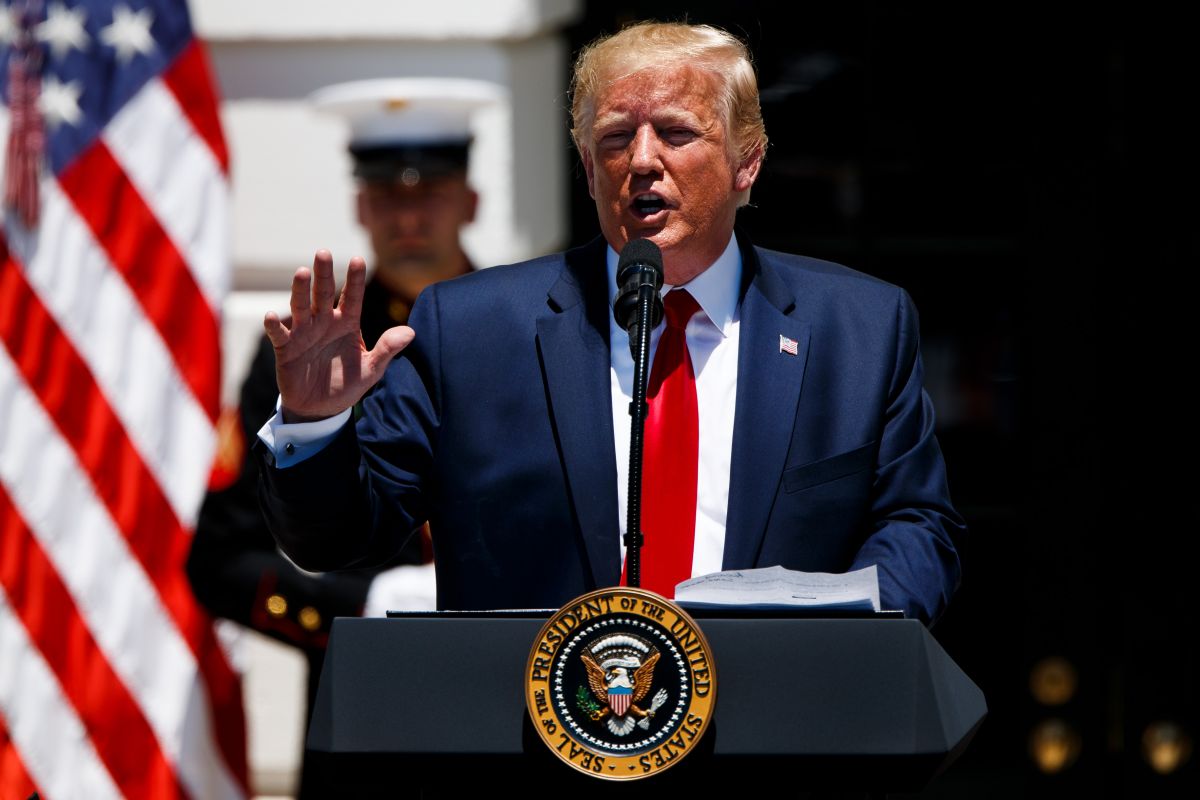
U.S. President Donald Trump plans to impose tariffs of 25 per cent on steel and aluminium imports into the United States, he said on Sunday.
“Any steel coming to the United States is going to have them, 25 per cent tariff,” Trump said, according to journalists travelling with the president. When questioned about tariffs on aluminium imports, Trump replied, “25 Per cent for both.”
Trump also confirmed his plan to announce further reciprocal tariffs in the coming week.
He spoke of an announcement on Tuesday or Wednesday.
“Very simply, if they charge us, we charge them, Trump told reporters, adding that the tariffs would go into effect almost immediately.”
U.S. tariffs of 10 per cent on Chinese goods took effect from Feb. 4.
The planned tariffs of 25 per cent on Mexico and Canada were suspended for an initial period of 30 days following promises from the two countries to increase border security measures.
Trump won November’s presidential election promising to slap high tariffs on foreign goods to reduce U.S. trade deficits.
He implemented a number of duties during his first term from 2017 to 2021.
Foreign
U.S. president considering 25% tariffs on Canada, Mexico starting in February

Donald Trump said tariffs of 25 per cent on products from Canada and Mexico could be introduced as early as February, hours after taking office as US president on Monday.
Speaking at the White House while signing various orders shortly after his inauguration, Trump said, “We’re thinking in terms of 25 per cent on Mexico and Canada, because they’re allowing vast number of people … to come in.”
“I think we’ll do it Feb. 1,” Trump added, referring to the potential start date for the tariffs.
Earlier on Monday, the Wall Street Journal reported that Trump did not intend to impose tariffs on trading partners like Canada, Mexico, and China.
Instead, he planned to instruct the authorities to assess trade relations with China and its neighbours on the North American continent, the Wall Street Journal reported, citing a summary of a planned memorandum and Trump’s advisers.
Shortly after winning the election in November, Trump threatened to impose tariffs on goods from Canada, Mexico, and China.
There are also fears in the EU that Trump could impose new tariffs.
Tariffs are a type of surcharge on imported goods. They are paid as goods enter the country.
Trump imposed a range of tariffs on imported goods during his first term in office from 2017 to 2021.
-

 Headlines4 years ago
Headlines4 years agoFacebook, Instagram Temporarily Allow Posts on Ukraine War Calling for Violence Against Invading Russians or Putin’s Death
-

 Headlines4 years ago
Headlines4 years agoNigeria, Other West African Countries Facing Worst Food Crisis in 10 Years, Aid Groups Say
-

 Foreign4 years ago
Foreign4 years agoNew York Consulate installs machines for 10-year passport
-

 News1 year ago
News1 year agoZero Trust Architecture in a Remote World: Securing the New Normal
-

 Entertainment3 years ago
Entertainment3 years agoPhyna emerges winner of Big Brother Naija Season 7
-

 Headlines2 years ago
Headlines2 years agoNigeria Customs modernisation project to check extortion of traders
-

 Entertainment2 years ago
Entertainment2 years agoMovie download platform, Netnaija, announces closure
-

 Economy2 years ago
Economy2 years agoWe generated N30.2 bn revenue in three months – Kano NCS Comptroller



